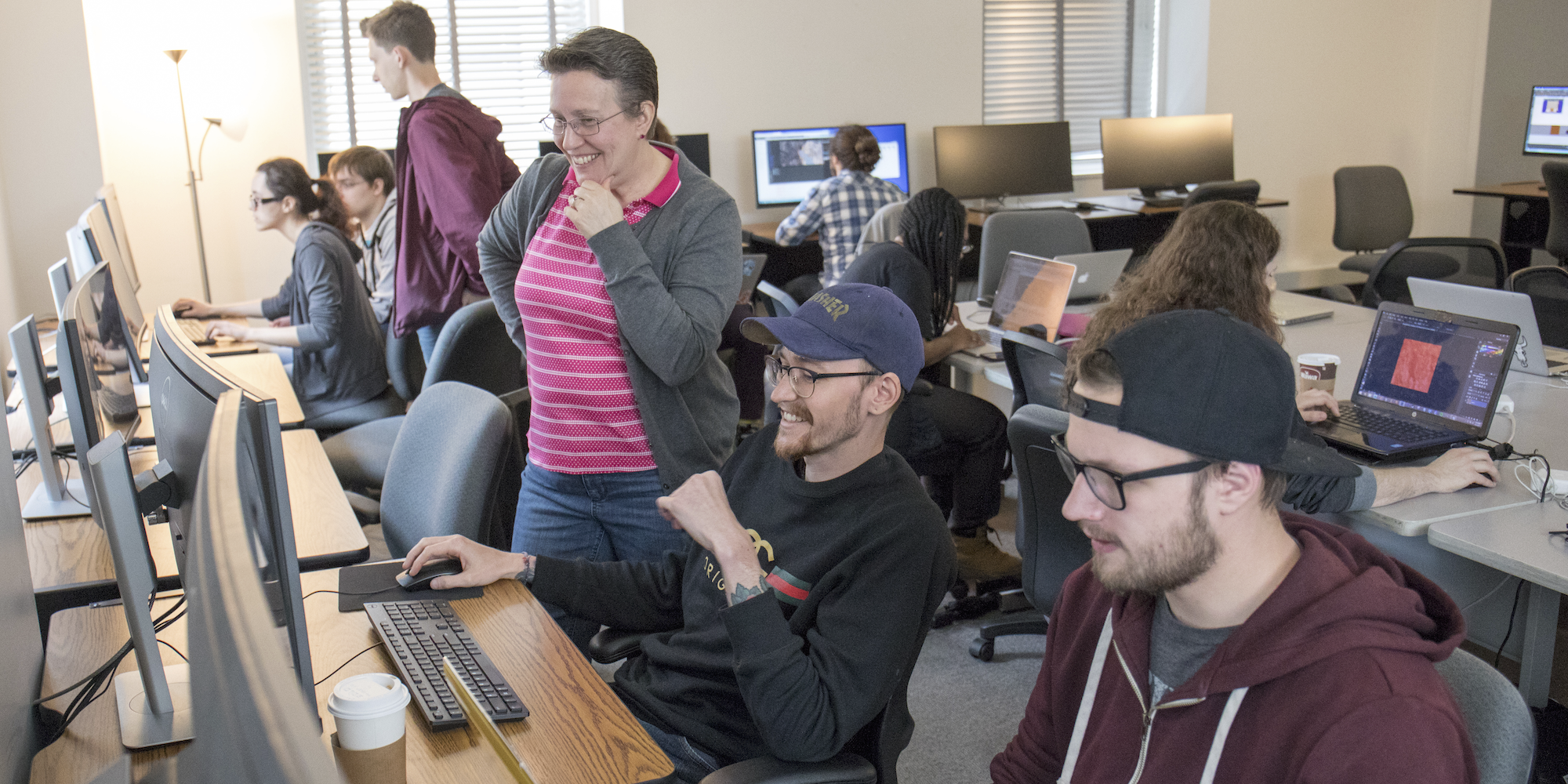
Erik Van Horn, Program Director
evanhorn@uarts.edu
215.717.6567
C O N T E N T S
Application
Learn more and apply to the Game Art program.
Description
Game Art is a term we use to refer to art created using interactive and immersive technologies. The Game Art program is designed to direct each student’s quest for creative self-expression and to lead to productive careers. We are creating fine artists –with a strong core foundation– who use contemporary digital methods. Students will be prepared to be effective creative partners, whether serving as part of a small indie-game development team, working on a large AAA title, or pursuing entrepreneurship in emerging technology.
Successful creative practice engaging interactive, immersive, and virtual technologies requires a deep foundation in traditional methods and approaches in the visual arts. Drawing on the rich history of The University of the Arts in both applied and fine arts, our program is positioned to accomplish this goal. Our approach uses a cross-college, interdisciplinary framework to create skillful virtual 3D artists who can create compelling, complex digital worlds from concept through realization.
Our approach balances the development of the artist’s creative voice with in-depth, systematic, progressive technical instruction. Students are exposed to broad historical contexts in order to develop rich aesthetics that push the boundaries of imagination. By emphasizing the artistic components of immersive media creation, we are able to re-think and re-frame the visualization of game worlds and experiences.
The students’ skill sets apply to industries ranging from entertainment to serious games, such as medical visualization, scientific modeling, educational applications, and others. Their job titles can include 3D Artist, Character Artist, Environment Artist, Gameplay Animator, Level Designer, Game Designer, UI Artist and in-game Visual Effects Artist.
Program Objectives
Our students will:
- Demonstrate an ability to utilize 3D-game development tools and systems to produce technically competent works of art;
- Demonstrate an ability to imagine and express creative, innovative, visually engaging virtual worlds and characters;
- Demonstrate the ability to participate and collaborate successfully as effective members of creative development teams;
- Demonstrate the ability to develop meaningful 3D virtual objects, characters and worlds across a wide range of aesthetic styles, while adapting to rapid changes in industry.
Program Requirements (120 credits)